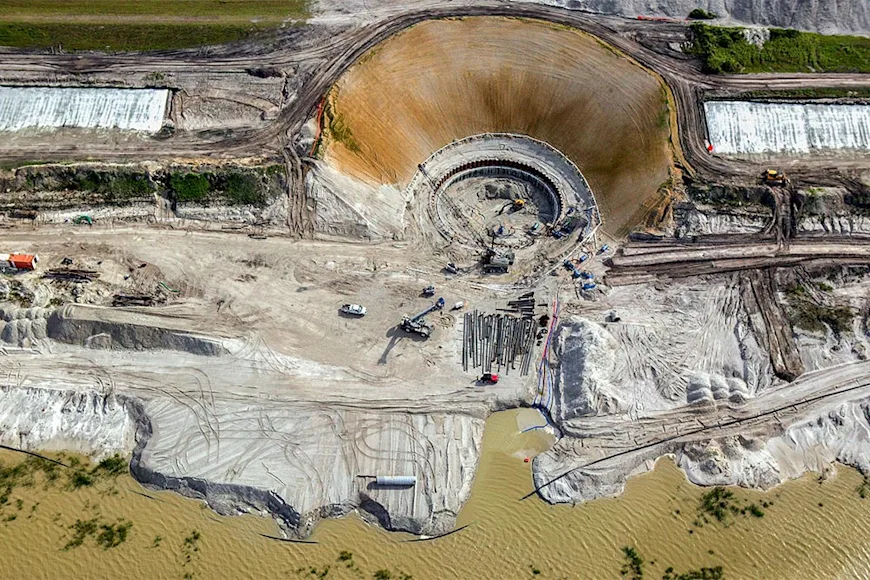Anglers, guides, and conservationists are up in arms over a fast-moving plan that would bring a roughly 8,600-acre open-pit mine to the northern reaches of the Florida Everglades. If granted permitting, government contractors working with south Florida’s sugar farming industry will actively mine limestone and other rock aggregates in an environmentally sensitive part of the Everglades for the next 30 to 40 years, Captains For Clean Water co-founder Captain Chris Wittman tells Field & Stream.
Wittman and fellow fishing guide Captain Daniel Andrews co-founded Captains For Clean Water nine years ago. Since then, the group has advanced critical restoration projects and fought to curb discharge-fueled algal blooms while advocating for sound water policy at the local and state level. But the organization's main focus is on restoring south Florida's famous Everglades, where anglers chase tarpon, snook, and redfish with both fly fishing and conventional tackle.
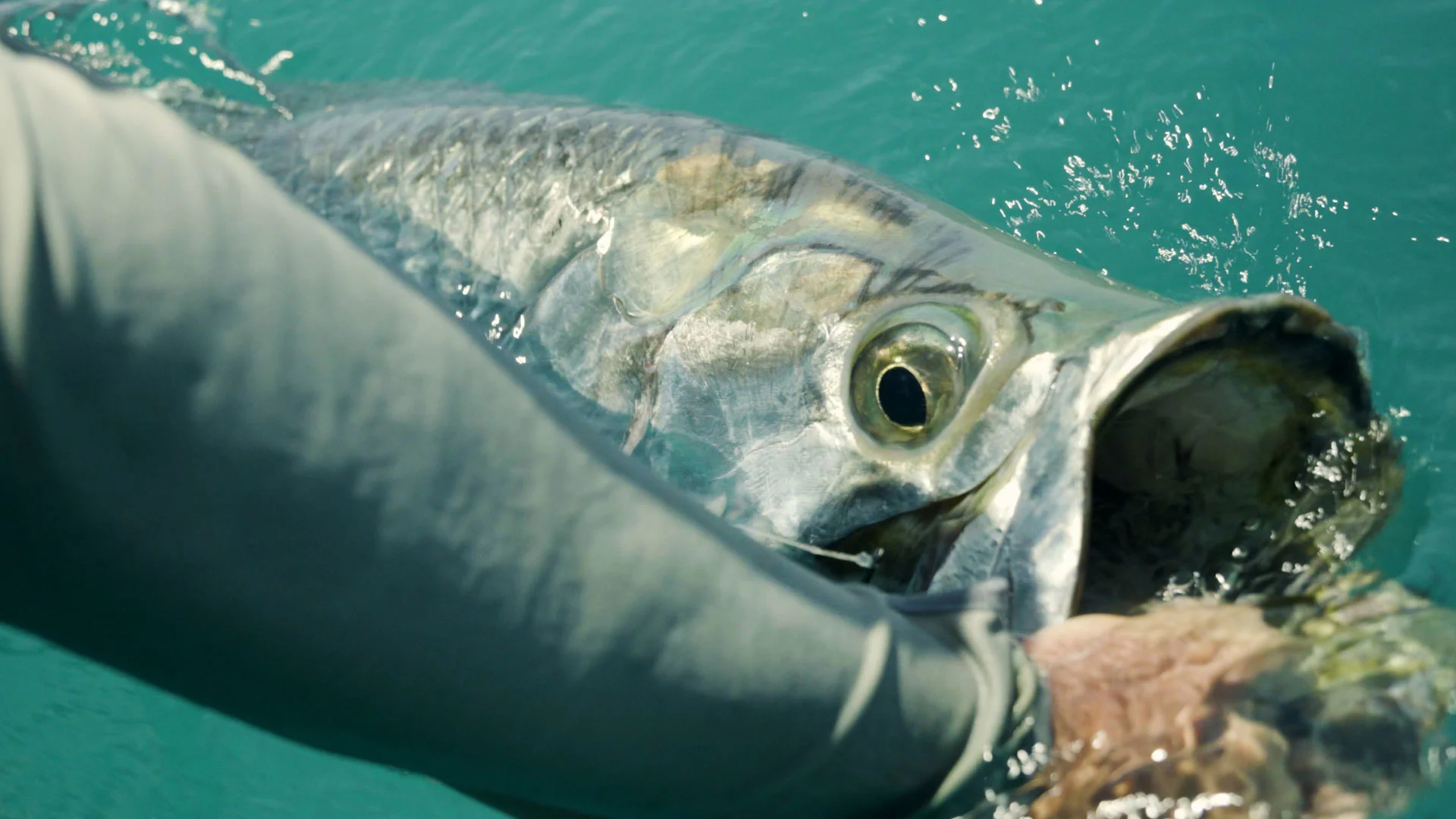
Special Interests Collide with Fisheries Restoration
“The sugar industry has fought Everglades restoration from the very beginning,” Wittman says. “And now, all of the sudden, they have a contractor bringing forth an unsolicited mining proposal that they’re trying to pass off as a water-resource project.” The Everglades' current rock mining saga began in 2024. According to Florida-based independent reporter Jason Garcia, that's when contractor Philip & Jordan put in its first application for the controversial rock mine, situated just south of Lake Okeechobee on land owned by the U.S. Sugar Corporation and Florida Crystals. According to Philip & Jordan, the rock mine would become a water storage facility after 3 to 4 decades of mining, thereby contributing to Everglades restoration.
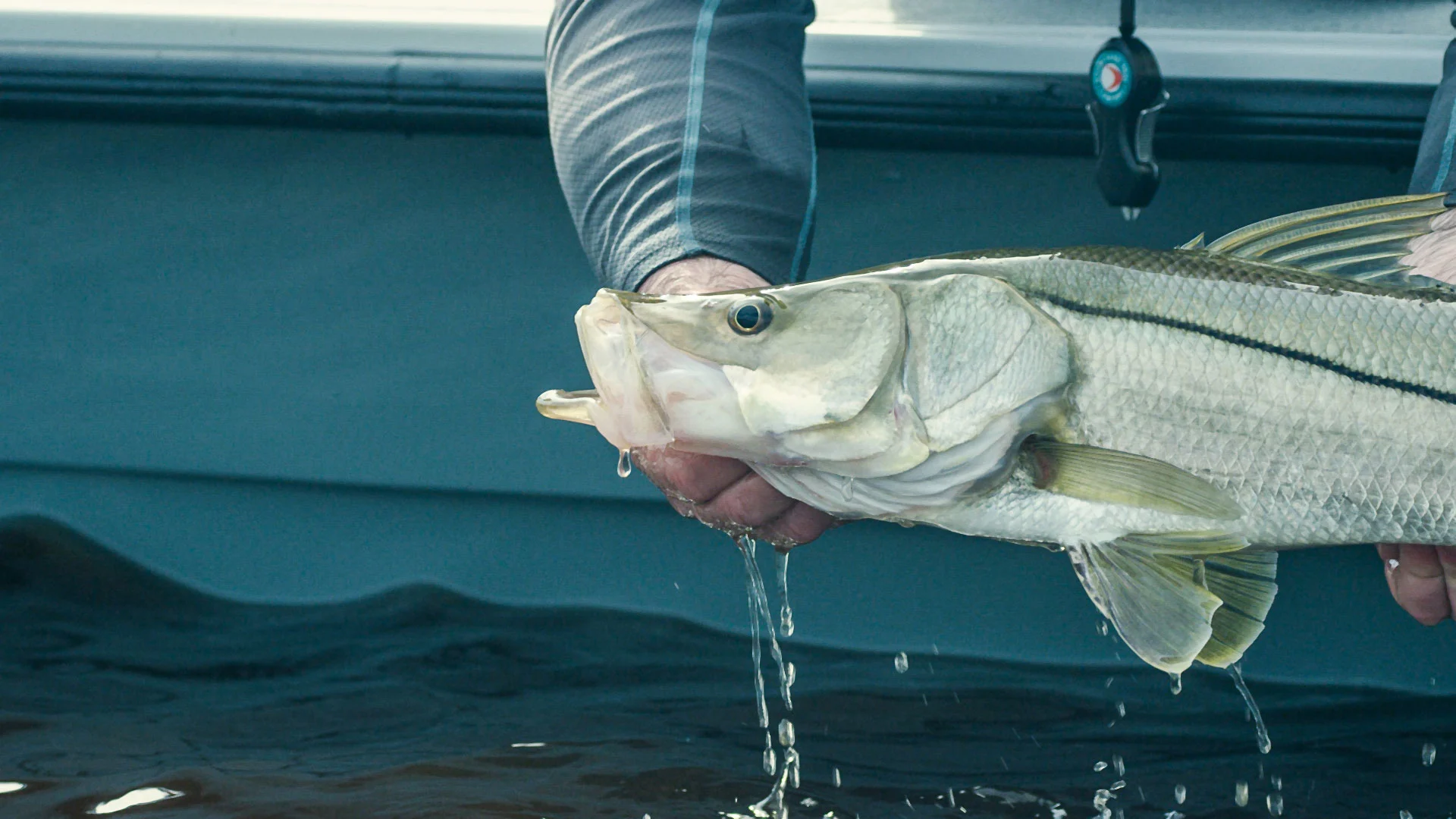
Unlike all previous restoration projects in the Everglades, the rock mining project was not solicited by the State of Florida or the US Army Corps of Engineers. Instead, the application was submitted immediately after new statutes were passed that green-lit the submission of unsolicited restoration projects, Wittman says. "Regardless of how they're trying to sell this, no one is asking Big Sugar to build a water storage facility in the Everglades," he says. "What they really want to do is exploit more than $800 million worth of limestone and other rock aggregate in the ground. Then, when they're done with the mining, they can capture and use the water for their own ends. There are a lot of red flags here."
Wittman spoke to oppose the project during a zoning hearing of the Palm Beach County Commissioners in late May, 2025. He was one of several fishing guides and concerned citizens who packed the hearing hall for a chance to speak to the County Commissioners for a total of just two minutes. During the hearing, Wittman said Phillip & Jordan stated on their website that they hope to construct much of the mining project with taxpayer funds. Video footage of mine opponents speaking out at the May hearing has since gone viral on the Captains For Clean Water YouTube page, amassing more than 6 million views.
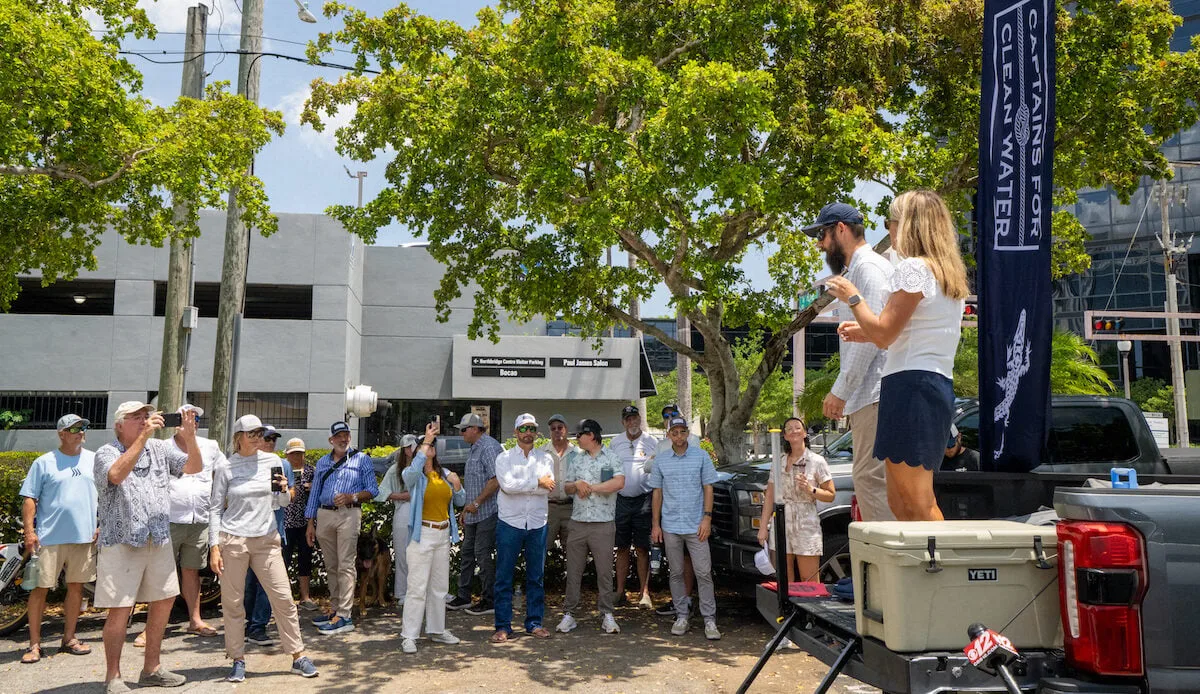
Despite the widespread opposition, the proposed rock mine appears to be moving forward. "They were able to get approval from Palm Beach County and the only thing they're waiting on now is a permit from the Florida Department of Environmental Protection (DEP), which could come as early as mid-August" Wittman says. "DEP has issued a statement that says they intend to issue the permit."
Threatening the "Keystone Project" of Everglades Restoration
If the rock mine goes through, conservationists say it could completely derail hard-worn, taxpayer-funded Everglades restoration efforts—namely a $4 billion reservoir that's currently being constructed by the US Army Corps of Engineers. That reservoir—known as the Everglades Agricultural Area Reservoir (EAA)—will store and clean billions of gallons of polluted water from Lake Okeechobee before sending the filtered water south on its historic flow path to benefit the wider Everglades and the Florida Bay. Once completed, it'll be the largest reservoir that the US Army Corps of Engineers has ever constructed.
"It's the crown jewel of Everglades restoration," says Captains For Clean Water Director of Education and Awareness Will Buehn. "If they compromise the structural integrity of the reservoir while blasting and excavating the rock mine, it could lead to enduring harmful water quality events, like the polluted discharges that kill sea grasses in the estuaries—which in turn lead to large-scale fish die offs." Buehn says the proposed rock mine would sit about a 1,000 feet away from the EAA reservoir.
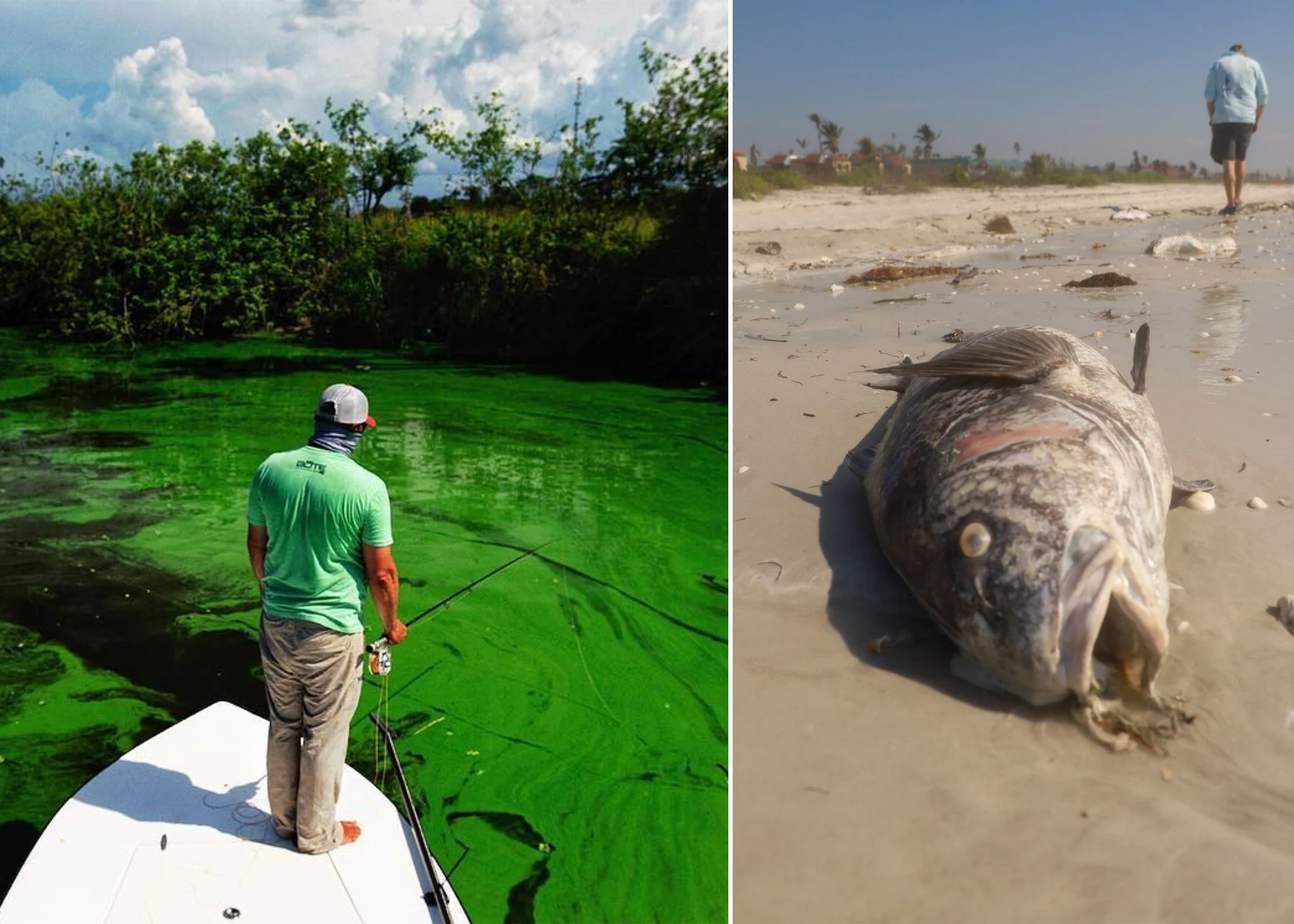
On July 2, the Army Corps of Engineers issued a statement raising concerns about the project. That came after Florida Congressman Brian Mast implored the federal agency to weigh in on the potential impacts that rock mining will have on its 17,000-acre above-ground EAA Reservoir.
In its letter, the Army Corps said it has only begun to assess the potential consequences, and the agency has "concerns about the proposed project's impacts on Everglades restoration." Issues cited in the letter include potential seepage from the rock mine and concerns about how the mining project would impact the reservoir's water management operations.
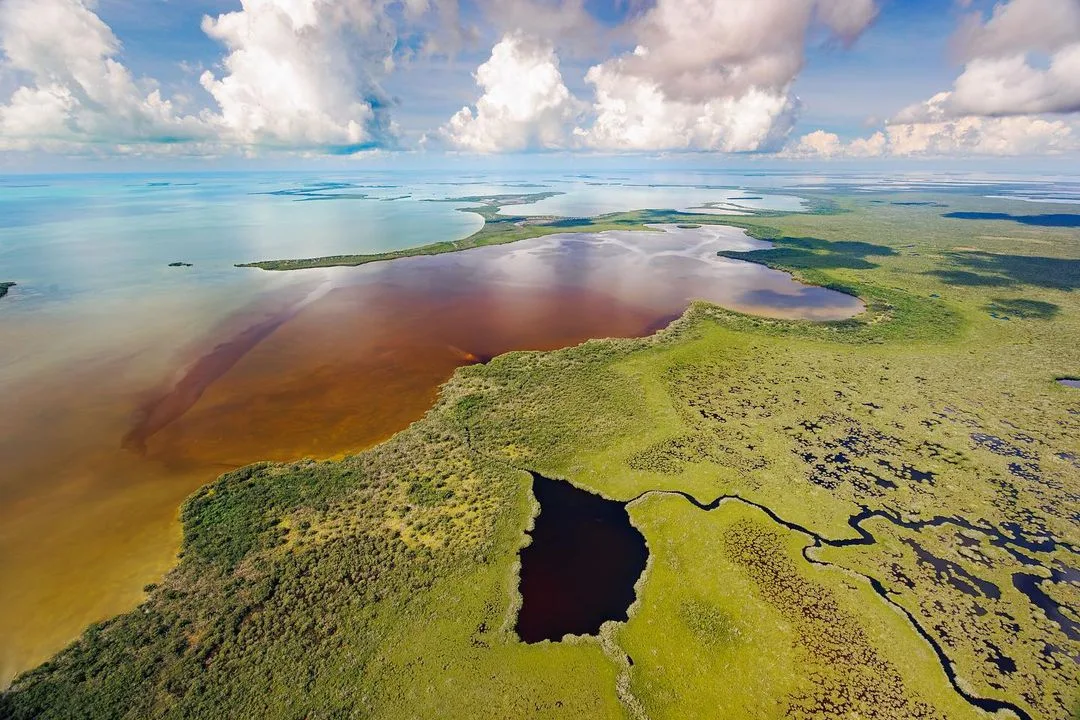
The Path Forward
"Scientists involved with Everglades restoration and water modeling have been raising the same concerns that the Army Corps outlined in its recent letter for months," says Wittman. "But that hasn't been enough to get the attention of leadership at the Department of Environmental Protection to pump the brakes until further analysis is done."
Wittman says that while the Army Corps is a key partner in Everglades restoration projects, it doesn't have the authority to halt or even pause the permitting process for Big Sugar's proposed rock mine. Instead, Captains For Clean Water is putting much of their hope in Gov. Ron DeSantis, who could direct the DEP to deny the permit until a more thorough analysis is complete. As of this writing, DeSantis' Office hasn't indicated any support for or opposition to the project. But the Florida Governor does have a history of picking up environmental causes, and he even campaigned against his opponent's ties to Big Sugar before winning office back in 2018.
Read Next: Budget Bill Still Mandates Drilling in Pristine Arctic National Wildlife Refuge
"We're hoping that now that the Army Corps is raising concerns, and a member of Congress is raising concerns, this will get elevated enough to at least pause the permitting process," Wittman says. "Otherwise, if [the DEP] issues that permit, they could be out there the next day with shovels in the ground."

